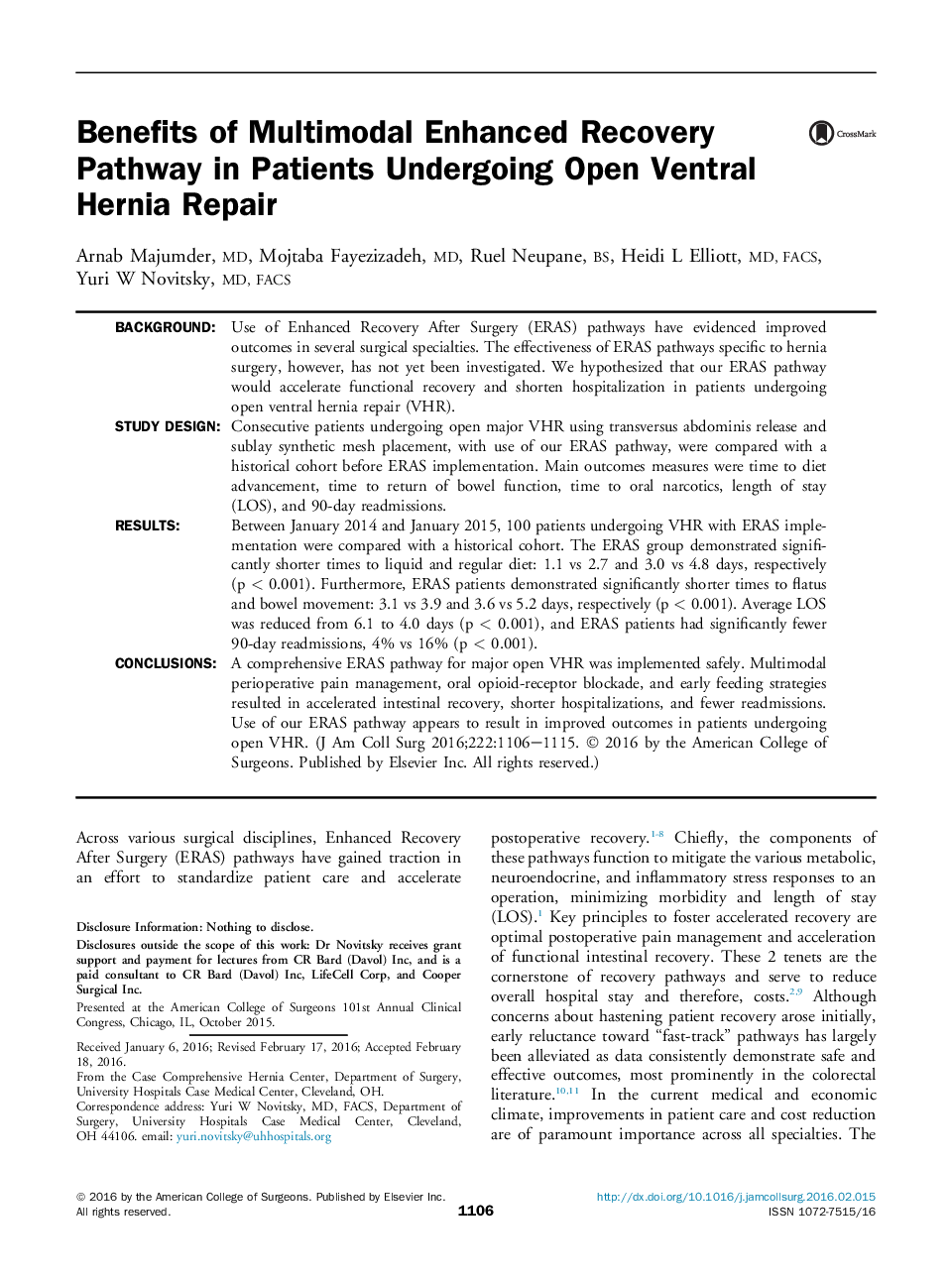| Article ID | Journal | Published Year | Pages | File Type |
|---|---|---|---|---|
| 4290587 | Journal of the American College of Surgeons | 2016 | 10 Pages |
BackgroundUse of Enhanced Recovery After Surgery (ERAS) pathways have evidenced improved outcomes in several surgical specialties. The effectiveness of ERAS pathways specific to hernia surgery, however, has not yet been investigated. We hypothesized that our ERAS pathway would accelerate functional recovery and shorten hospitalization in patients undergoing open ventral hernia repair (VHR).Study DesignConsecutive patients undergoing open major VHR using transversus abdominis release and sublay synthetic mesh placement, with use of our ERAS pathway, were compared with a historical cohort before ERAS implementation. Main outcomes measures were time to diet advancement, time to return of bowel function, time to oral narcotics, length of stay (LOS), and 90-day readmissions.ResultsBetween January 2014 and January 2015, 100 patients undergoing VHR with ERAS implementation were compared with a historical cohort. The ERAS group demonstrated significantly shorter times to liquid and regular diet: 1.1 vs 2.7 and 3.0 vs 4.8 days, respectively (p < 0.001). Furthermore, ERAS patients demonstrated significantly shorter times to flatus and bowel movement: 3.1 vs 3.9 and 3.6 vs 5.2 days, respectively (p < 0.001). Average LOS was reduced from 6.1 to 4.0 days (p < 0.001), and ERAS patients had significantly fewer 90-day readmissions, 4% vs 16% (p < 0.001).ConclusionsA comprehensive ERAS pathway for major open VHR was implemented safely. Multimodal perioperative pain management, oral opioid-receptor blockade, and early feeding strategies resulted in accelerated intestinal recovery, shorter hospitalizations, and fewer readmissions. Use of our ERAS pathway appears to result in improved outcomes in patients undergoing open VHR.
